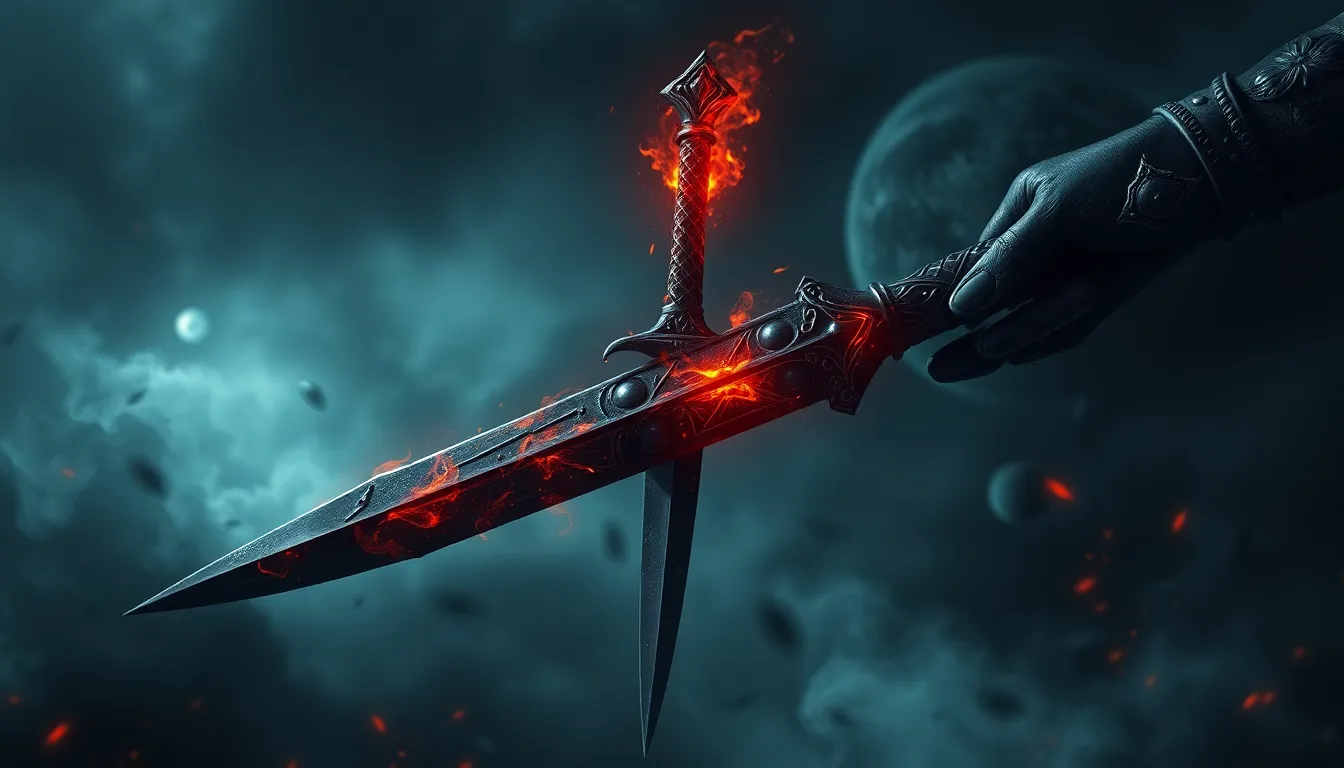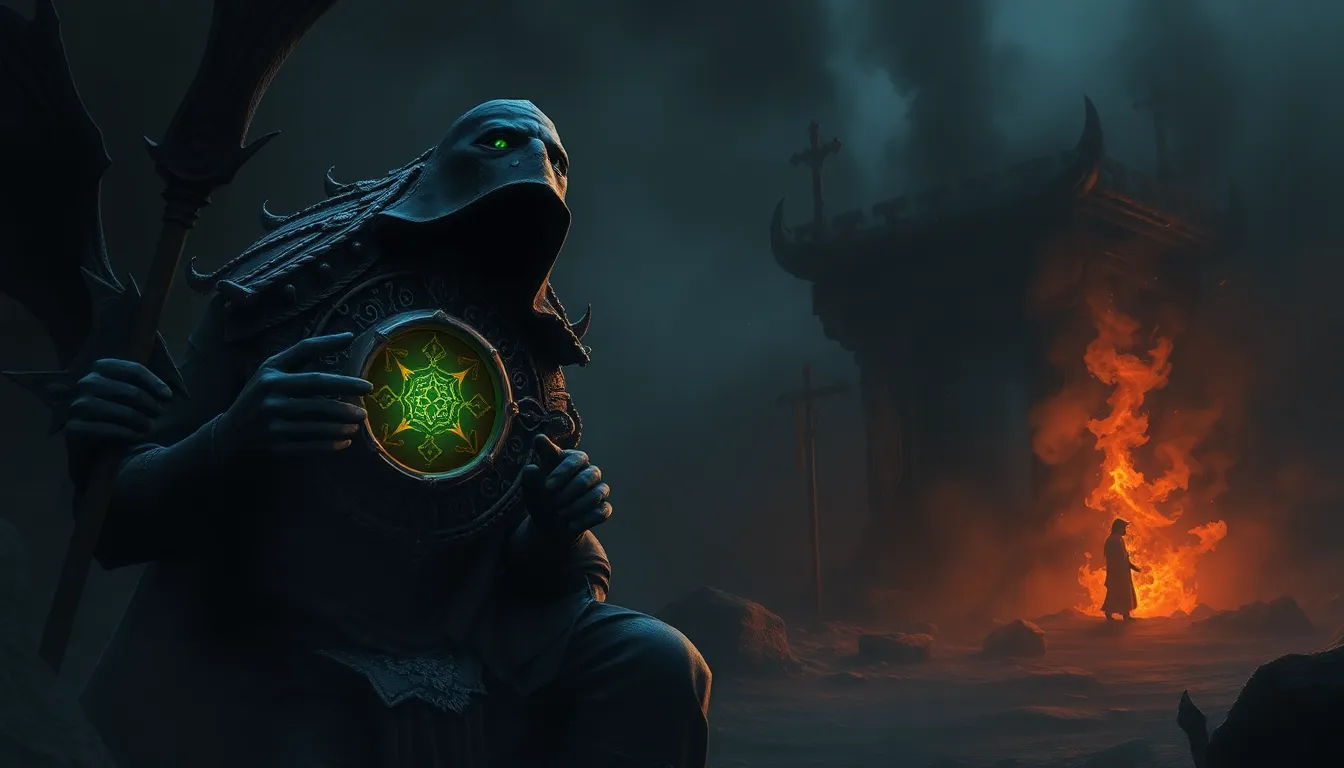Exploring the Supernatural in African Mythology
I. Introduction
African mythology is a rich and diverse tapestry of beliefs, customs, and traditions that have been passed down through generations. It encompasses a vast array of supernatural beings, entities, and phenomena that play a profound role in the lives of many African people. From powerful deities to revered ancestors, from enigmatic nature spirits to mythical creatures, the supernatural realm permeates every aspect of African mythology.
II. Deities and Spirits in African Mythology
At the heart of African mythology lies a pantheon of deities and spirits that govern various aspects of life and the cosmos. These supernatural beings are often depicted as having immense power and influence, and they are revered and worshipped by their devotees. Among the most prominent deities in African mythology are Olorun, the supreme creator god in Yoruba tradition; Nyame, the sky god of the Akan people; and Mawu-Lisa, the dualistic deity of the Fon people.
III. Ancestral Beings
Ancestors hold a sacred place in African mythology and are revered as intermediaries between the living and the supernatural realm. They are believed to have a profound influence on the lives of their descendants, offering guidance, protection, and support. In many African cultures, ancestors are honored through rituals, offerings, and prayers, and they are often invoked for assistance in times of need. The belief in ancestral spirits is deeply ingrained in African culture and serves as a vital link between the past, present, and future.
IV. Nature Spirits and Animal Deities
The natural world holds a special significance in African mythology, and many cultures believe in the existence of nature spirits that inhabit forests, rivers, mountains, and other natural features. These spirits are often seen as guardians of the environment and are revered for their power and wisdom. Animal deities also play a prominent role in African mythology, with many cultures believing that certain animals possess supernatural abilities and are worthy of veneration.
V. Mythical Creatures and Legendary Beings
African mythology is replete with tales of mythical creatures and legendary beings that have captured the imagination of people for centuries. These creatures include the Anansi, a cunning spider trickster from Akan mythology; the Abiku, a mischievous spirit child that is believed to bring misfortune; and the Sangoma, a powerful traditional healer with the ability to communicate with the supernatural realm.
VI. Rituals and Practices Involving the Supernatural
The supernatural realm is not something to be feared or avoided in African mythology but rather something to be engaged with and respected. Numerous rituals and practices have been developed over the centuries to connect with the supernatural, including divination, ancestor veneration, and spirit possession. These rituals are often performed by traditional healers, priests, and other spiritual leaders.
VII. Symbolism and Metaphors in African Supernatural Beliefs
African supernatural beliefs are often expressed through rich symbolism and metaphors. For example, the leopard is a common symbol of strength and courage, while the tortoise represents wisdom and patience. Natural phenomena such as thunder and lightning are often seen as manifestations of the supernatural, and dreams are believed to provide insights into the spiritual realm.
VIII. The Role of Divination in Supernatural Interactions
Divination plays a vital role in African supernatural beliefs and practices. Traditional diviners use various methods, such as casting bones or reading cowrie shells, to communicate with the supernatural realm and gain insights into the future, resolve conflicts, and heal illnesses. Divination is seen as a way to bridge the gap between the visible and invisible worlds.
IX. The Supernatural and African Art and Culture
The supernatural realm has had a profound influence on African art and culture. Masks, sculptures, and other artistic creations often depict supernatural beings, and music, dance, and storytelling are used to invoke the supernatural and connect with the ancestors. The supernatural is an integral part of African identity and is reflected in every aspect of its cultural expression.
X. Contemporary Beliefs and Practices
While African mythology has evolved over time, many supernatural beliefs and practices continue to play a significant role in contemporary African societies. Traditional healers, diviners, and spiritual leaders are still consulted for guidance and assistance, and rituals and ceremonies involving the supernatural are still widely practiced. The supernatural realm remains a vital part of the lives of many African people, offering a sense of connection to the past, present, and future.
FAQ
Q: What is the most important deity in African mythology?
A: The most important deity varies depending on the specific culture and region, but some of the most prominent include Olorun, Nyame, and Mawu-Lisa.
Q: What is the role of ancestors in African mythology?
A: Ancestors are revered as intermediaries between the living and the supernatural realm, offering guidance, protection, and support.
Q: What are some common mythical creatures in African mythology?
A: Some common mythical creatures include the Anansi, a cunning spider trickster; the Abiku, a mischievous spirit child; and the Sangoma, a powerful traditional healer.
Q: How do people connect with the supernatural in African mythology?
A: People connect with the supernatural through rituals, divination, ancestor veneration, and spirit possession.
Q: Does the supernatural still play a role in African society today?
A: Yes, many supernatural beliefs and practices continue to play a significant role in contemporary African societies, offering a sense of connection to the past, present, and future.



